Coping with the Emotional Impact of a Personal Injury
The first priority of a vehicle accident victim should always be to focus on their physical and emotional recovery. Based on the severity of the injuries, the recovery period may be prolonged and extensive. During the recovery period, you may not be able to work. The more severe the injury, the longer it will take to completely physically and emotionally heal.
Managing the Emotional Trauma
Persistent Anxiety
According to the National Institutes of Health (NIH), moderate to severe levels of anxiety can remain for weeks or even months after a car accident. After a car crash, females are especially prone to experiencing high levels of anxiety, with nearly 70 percent experiencing high levels of anxiety in the initial month and around 15 percent still experiencing moderate levels of anxiety six to eight months after the incident.
Individuals suffering from anxiety due to specific instances, such as a vehicle crash, may experience additional aftereffects. If you are suffering from persistent anxiety or any anxiety attacks after an auto accident, do not hesitate to contact your doctor or another medical practitioner for help.
Acute and Post-Traumatic Stress Disorder
The most common mental health problem experienced by car accident survivors is Post-traumatic stress disorder (PTSD). The American Psychological Association states that motor vehicle crashes are the top cause of PTSD in the general (non-military) population. PTSD can have a grave effect on your life if you try to cope with it on your own. Do not assume that a mental health problem will disappear on its own and seek professional care and therapy.
Major Depressive Disorder
Another mental health concern common in both accident victims and the general population is depression, which is clinically known as major depressive disorder (MDD). For accident victims, depression is often associated with the physical injuries and pain experienced from the accident.
Similarly, the work and stress that victims experience regarding the economic effects of their car wreck can trigger depression. Further, many victims suffering from PTSD or anxiety experience depression, and some drugs that treat anxiety can also be used for the treatment of depression. If you believe that you might be suffering from depression, consult a mental health professional as soon as possible to undergo appropriate treatment.
Is It Possible to Recover Damages for Psychological Injury?
One of the questions we are often asked by clients is whether it is possible for a plaintiff in a Virginia personal injury case to seek compensation for their psychological injury. The short answer is – yes, as long as they meet certain criteria.
Recovering Damages for Psychological Injuries – What You Need to Know
Virginia law allows plaintiffs in personal injury cases to recover damages for psychological injuries, as it is generally assumed that a person who suffers a serious physical injury is also likely to be emotionally affected by it.
For example, if you get seriously injured in a car accident, you might feel anxious about getting into a car again – even after you fully recover from your injuries. The very sight of a car could trigger feelings of anxiety and fear within you. You might require therapy, counseling, and even medications in some cases to treat your mental problems.
In such a scenario, it does not make any sense for you to seek compensation for your physical injuries alone, since the emotional harm caused by the accident is just as bad – if not worse. This is why Virginia law allows you to seek compensatory damages for emotional distress.
On the other hand, if you do not suffer any physical injury in an accident, it can be difficult for you to recover damages for emotional harm – except under certain circumstances.
Compensation for Psychological Injury – The Criteria to Meet
Under Virginia law, you are eligible to recover compensatory damages for a psychological injury only if your claim meets at least one of the following two criteria.
- You also suffered a physical injury in the accident
- Your psychological injury was caused as a result of intentional or reckless conduct on the defendant’s part
In the absence of a physical injury, you must prove the following things.
- The defendant’s actions were intentional or reckless.
- There is a connection between the defendant’s actions and the emotional harm you suffered. In other words, you were emotionally harmed directly or primarily as a result of the defendant’s actions.
- The emotional harm you suffered was severe enough to seek compensatory damages.
If you are unable to prove any of these three elements, you are unlikely to receive any compensation for your emotional injury.
The Need for High Standard of Proof in Psychological Injury Claims
The reason why psychological injury claims have a higher standard of proof is that the judicial system wants to prevent people from ‘gaming the system’ by making up frivolous claims.
Unlike a physical injury, a psychological injury is not evident. Nor is it easy to prove. A plaintiff can easily exaggerate or outright lie about their condition in order to get compensation. This is why courts in Virginia tend to carefully scrutinize psychological injury claims and reject any claim that does not meet the aforementioned criteria.
The Supreme Court of Virginia has stated in one of its rulings (Russo v. White) that a plaintiff can recover compensation in a psychological injury claim only if the defendant’s conduct is deemed outrageous, beyond the bounds of human decency, and utterly intolerable in a civilized society.
Also, courts in Virginia tend to award compensation in psychological injury claims only if it is established that the emotional harm suffered by the plaintiff was more than what the average person could endure.
Speak to a Qualified Auto Accident Attorney in Virginia Today
For injuries sustained in a car wreck, there is no standard recovery duration. It is best not to push yourself to resume work without consulting your doctor. A medical professional is qualified to understand whether you have made sufficient recovery to be able to safely return to work. A compromised recovery and long-term health problems can result from taking on too much too soon.
After an auto accident, you likely have various questions about your injuries and legal options. The attorneys at Olmstead & Olmstead can address all your questions and concerns. The more time you expect your physical healing to take, the more you will need a lawyer to guide you through the process.
At Olmstead & Olmstead, we know that car crash victims often experience temporary or long-term psychological damage, besides their physical injuries. We are committed to making the process of personal injury claim as seamless and straightforward as possible to enable you to focus on taking care of yourself and your loved ones without any further stress.
If you or someone you love has been injured in a serious vehicle accident that resulted in physical and psychological injuries, call our Virginia car accident lawyers at (703) 361-1555 for a initial consultation .

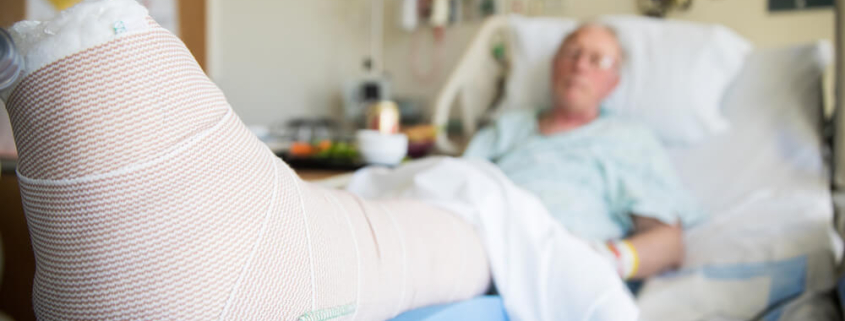
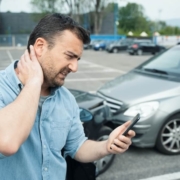

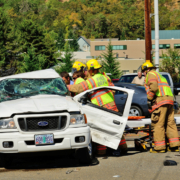
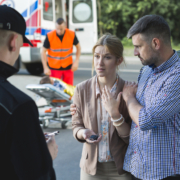

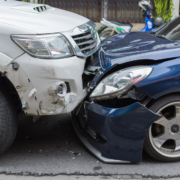

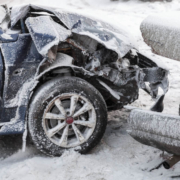



Leave a Reply
Want to join the discussion?Feel free to contribute!